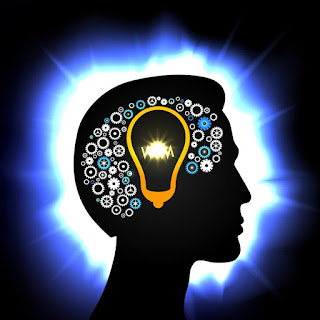The Power of Knowledge: Unpacking the Intellectual Knowledge Definition
Knowledge is a fundamental aspect of human existence. It shapes our understanding of the world, informs our decisions, and empowers us to adapt and thrive. Intellectual knowledge, in particular, is a cornerstone of human progress and development.
In
this article, we will delve into the concept of intellectual knowledge,
exploring its definition, significance, and the ways in which it enriches our
lives.
Defining Intellectual Knowledge
What
is Intellectual Knowledge?
Intellectual knowledge definition refers to the
information, facts, concepts, and insights that individuals acquire through
cognitive processes such as learning, reasoning, and critical thinking. It
encompasses a wide range of subject matters, from mathematics and science to
literature, philosophy, and the arts. Intellectual knowledge is distinct from
other forms of knowledge, such as practical or experiential knowledge, as it is
rooted in the mental processes of comprehension, analysis, and synthesis.
The
Pursuit of Understanding
The
acquisition of intellectual knowledge involves a deliberate and often lifelong
pursuit of understanding. It is driven by curiosity, the desire to explore, and
the thirst for deeper insights into the world around us. Intellectual knowledge
is not limited to formal education but extends to informal learning,
self-study, and the accumulation of wisdom gained through life experiences.
The Significance of Intellectual Knowledge
Empowerment
and Decision-Making
Intellectual
knowledge empowers individuals to make informed decisions. It equips them with
the tools to analyze complex situations, weigh pros and cons, and arrive at
rational choices. Whether it's selecting a career path, making financial
investments, or addressing societal challenges, intellectual knowledge is the
foundation upon which sound decision-making is built.
Cultural
Enrichment and Creativity
Intellectual
knowledge contributes to cultural enrichment and creativity. It enables
individuals to appreciate art, literature, music, and other forms of creative
expression on a deeper level. Moreover, it inspires innovation and fuels the
development of new ideas and technologies that advance society.
Problem-Solving
and Critical Thinking
Intellectual
knowledge enhances problem-solving skills and critical thinking abilities. It
equips individuals with the capacity to analyze problems, identify potential
solutions, and assess their effectiveness. These skills are invaluable in
addressing complex issues across various domains, from science and technology
to social and ethical dilemmas.
Sources of Intellectual Knowledge
Formal
Education
Formal
education, such as school, college, and university programs, is a structured
and systematic source of intellectual knowledge. It provides a foundation in
subjects ranging from mathematics and science to the humanities and social
sciences. Formal education also fosters critical thinking and research skills.
Informal
Learning
Informal
learning encompasses self-directed study, reading, online courses, and
educational pursuits outside the traditional classroom setting. It allows
individuals to explore specific interests and acquire intellectual knowledge at
their own pace. The internet, in particular, has democratized access to a vast
array of intellectual resources.
Experiential
Learning
Experiential
learning involves gaining intellectual knowledge through direct experiences and
real-world interactions. It often occurs in fields such as scientific research,
apprenticeships, internships, and hands-on projects. Experiential learning
bridges the gap between theory and practice, enhancing understanding and
expertise.
Dynamic
and Evolving
Intellectual
knowledge is not static; it evolves over time. As new discoveries are made,
theories are revised, and paradigms shift, our understanding of the world
continually deepens and expands. The dynamic nature of intellectual knowledge
reflects the capacity of human intellect to adapt and grow.
Interdisciplinary
and Collaborative
In
today's interconnected world, intellectual knowledge often transcends
traditional disciplinary boundaries. Collaboration among experts from various
fields leads to the integration of knowledge, resulting in innovations and
breakthroughs that benefit society. Interdisciplinary approaches foster
holistic understanding and problem-solving.
Conclusion
Intellectual
knowledge is a powerful force that shapes our individual and collective
journeys. It empowers us to make informed decisions, fosters cultural
enrichment and creativity, and equips us with problem-solving and critical
thinking skills.
Whether
acquired through formal education, informal learning, or experiential
endeavors, intellectual knowledge is the key to unlocking our potential and
driving progress in an ever-changing world. It reminds us that the pursuit of
knowledge is not only a personal endeavor but a collective endeavor that
enriches society and propels us toward a brighter future.


Comments
Post a Comment